


Blink blink !
Its almost here


Top 10 Tyre Brands in India in 2024
- 1Top tyre brands in India offer durability and performance across various budgets
- 2Different types of cars require different types of tyres for optimal performance.
- 3Best tyre companies offer various features for specific use cases.
Tyres are one of the most vital components of a car. They are the only parts which are in contact with the road surface and are the final element in putting down the power of the engine onto the road. Tyres dictate various elements of a car’s ability to offer stability, brake effectively, offer grip while cornering, manage ride quality and comfort as well as optimise fuel efficiency. Compromising on tyre quality can have drastic consequences in how the car feels to drive, its safety and overall performance.
Here’s a list of the best tyre brands available in India in 2024, for you to make an informed decision on choosing this vital component of your car.
List of Best Tyre Brands in India
| S No. | Tyre Brands |
| 1. | MRF |
| 2. | Apollo |
| 3. | Ceat |
| 4. | JK Tyre |
| 5. | Bridgestone |
| 6. | Goodyear |
| 7. | Pirelli |
| 8. | Michelin |
| 9. | Yokohama |
| 10. | Continental |
1. MRF

Based out of Chennai, Madras Rubber Factory, or more popularly known as MRF, is a top tyre manufacturer in India. MRF was established in 1946, and aside from making tyres for road-going cars, it has been actively involved in motorsport. In modern times, MRF is an OEM supplier for many car brands sold in India and international markets. MRF has a wide presence in multiple Indian cities and is known for their reliable products. Apart from cars, MRF also manufactures tyres for motorcycles and commercial vehicles.
MRF has a few popular tyre series that are available for all types of passenger cars ranging from entry-level hatchbacks to luxury sedans and SUVs.
MRF Tyre Price & Features:
| Tyre Name | Price Range (in ₹) | Features |
| ZVTS/ZVTS/ZLX/ZTS/ZLO | 2,800-6,000 |
|
| Ecotred/Perfinza Series | 3,000-15,000 |
|
| Wanderer Series | 6,000-12,000 |
|
2. Apollo Tyres

With presence in over 100 countries, and seven manufacturing facilities in India and Europe, Apollo Tyres is ranked among the leading tyre brands in India. Apollo Tyres was established in 1972 and is headquartered in Gurugram. Having acquired Vredestien, one of the oldest tyre brands in the world, Apollo Tyres now has international technology powering its manufacturing process and products.
Some notable passenger car products from the brand are listed as follows.
Apollo Tyre Price & Features:
| Tyre Name | Price Range (in ₹) | Features |
| Amazer and Alnac Series | 2,500-8,000 |
|
| Aspire and Alpha Series | 4,500-12,000 |
|
| Apterra Series | 5,000-13,000 |
|
3. Ceat Tyres

Established in 1924, Ceat is ranked as a prominent tyre manufacturer in India. Ceat manufactures tyres for passenger cars as well as motorcycles, light and heavy commercial vehicles. Ceat tyres are commonly found as stock fitment in most cars as they are a leading OEM supplier. Ceat offers its products in over 110 countries.
Its passenger car series include a wide range of options for every budget.
Ceat Tyre Price & Features:
| Tyre Name | Price Range (in ₹) | Features |
| Milaze and Fuelsmarrt Series | 2,000-7,000 |
|
| SecuraDrive and SportDrive Series | 4,000-11,000 |
|
| Czar and CrossDrive Series | 5,000-16,000 |
|
4. JK Tyre

JK Tyre & Industries Ltd. was established in 1974 and since then, it has grown to become one of the leading tyre manufacturers in India. It is well known as an OEM supplier for passenger car tyres. JK Tyre’s range of offerings now include a mix of entry-level high-mileage tyres as well as high-performance and off-road alternatives in a wide range of sizes and for various budgets.
Notable series of JK Tyre products include the following range of tyres.
JK Tyre Price & Features:
| Tyre Name | Price Range (in ₹) | Features |
| Vectra and Ultima NXT Range | 2,500-6,000 |
|
| UX Royale Range | 3,500-7,500 |
|
| Ranger H/T and A/T Range | 4,500-10,500 |
|
5. Bridgestone

The Japanese tyre giant Bridgestone, has been in India since the past 25 years. It operates with two manufacturing facilities located in Madhya Pradesh and Maharashtra. Its tyres are available in over 50 cities in India and are retailed through over 3,000 dealers. Bridgestone has amassed immense experience in motorsport over many years, including the highest form of four-wheel racing, having supplied tyres to Formula 1 teams as well.
Some of its notable series of tyres sold in India are listed below.
Bridgestone Tyre Price & Features:
| Tyre Name | Price Range (in ₹) | Features |
| B and S Series (B250, B390, B800, S248, S322) | 3,500-7,500 |
|
| Turanza and Potenza Range | 5,000-12,000 |
|
| Dueler | 7,000-18,000 |
|
6. Goodyear

American brand Goodyear was established way back in 1898. Goodyear celebrated its 100th anniversary in India in 2022, which alone tells of its presence and commendable reputation in the country. The company operates two manufacturing plants located in Ballabgarh and Aurangabad, and is a major OEM supplier for passenger cars.
Its popular series sold in India include the following.
Goodyear Tyre Price & Features:
| Tyre Name | Price Range (in ₹) | Features |
| Assurance Range | 4,500-8,500 |
|
| Ducaro Hi-Miler and Duraplus Range | 2,500-6,000 |
|
| Wrangler Range | 6,500-12,500 |
|
7. Pirelli

The Italian tyre major has been around for 150 years with expertise in innovative tyre technologies. Pirelli is the go-to brand for high-performance tyres and is currently the sole tyre supplier for modern-day Formula One cars apart from other forms of top-tier motorsport series. Pirelli focuses on ultra-high performance tyres for both road and off-road applications.
Some of their top-selling series in India are listed below.
Pirelli Tyre Price & Features:
| Tyre Name | Price Range (in ₹) | Features |
| P Zero Range | 14,000-75,500 |
|
| Scorpion Range | 7,500-19,500 |
|
| Cinturato Range | 4,000-9,000 |
|
8. Michelin

The French tyre manufacturer has been around since 1889, and has seen great successes in motorsport. Its years of racing experience has made way for trickle down technologies to be extended to passenger car tyre range. In India, Michelin’s range of tyre offerings include affordable to high-performance options.
Its notable series sold in India include the following.
Michelin Tyre Price & Features:
| Tyre Name | Price Range (in ₹) | Features |
| Energy XM Range | 4,000-8,500 |
|
| Pilot Sport Range | 12,000-25,000 |
|
| LTX Force and Latitude Range | 8,000-37,000 |
|
9. Yokohama

The Japanese tyre manufacturer was set up in 1917 as a joint venture between Yokohama Electric Cable Manufacturing Company and popular American tyre company, B.F. Goodrich. They are a well-established tyre brand in India, recommended for high-quality tyres. Their passenger car tyre offerings include options for compacts to high-performance cars.
Their notable products in India include the following tyres.
Yokohama Tyre Price & Features:
| Tyre Name | Price Range (in ₹) | Features |
| Earth-1 Range | 3,500-7,500 |
|
| Advan Sport Range | 13,500-27,500 |
|
| Geolander A/T Range | 7,500-15,000 |
|
10. Continental Tyres
.jpg)
The pioneers of grooved car tyres, Continental, has been around since 1871. In India, Continental offers a range of car and SUV tyres focused on safety and are made in India for both domestic consumption and exports.The German tyre manufacturer is a big player in Europe but only enjoys a small share in the Indian market. However, that doesn’t take away from its high-quality tyre offerings.
In India, they offer the following range of tyres:
Continental Tyre Price & Features:
| Tyre Name | Price Range (in ₹) | Features |
| ComfortContact CC6 Range | 3,500-7,500 |
|
| ContiPremiumContact and ContiSportContact Range | 4,500-30,000 |
|
| ContiCrossContact Range | 7,000-18,000 |
|
Factors to consider while choosing the best tyre brand for your car
1. Usage Requirements
The difference between tyres are mostly dependent on the road surface they’re operating on. Two tyres at the same price may have completely different designs and corresponding road surfaces that they’re optimised for. So determining your usage conditions becomes crucial to choose the best tyre and the best tyre brand for your car.
For instance, a high-performance tyre is made to be used on well-paved, smooth roads and highways, but if it’s primarily used on broken roads, then it may wear out much sooner. Such a tyre may not be able to take the brunt of constant potholes and broken ridges, and may lead to frequent punctures and other damage. Thus, it is vital to ascertain the primary road surface(s) that your car will operate on.
2. Tyre Type and Vehicle Compatibility
It is important to match the correct tyres with your vehicle type. A hatchback or sedan may be able to share tyre types, but not with SUVs. Similarly, a high-performance tyre might be an overkill for a regular hatchback that may not be able to extract its performance capabilities to the highest degree.
SUV tyres are usually designed to ply on rougher surfaces and handle higher loads, thus, a similarly sized sedan tyre on one may be prone to failure and won’t be a suitable application.
3. Tyre Qualities
Most tyre brands will list its sub-brands or series and have particular characteristics bifurcating them. It is important to select these qualities based on the type of car you own and its intended use. Tyres brands categorise their products on usage and features with the lower-end spectrum focusing on -
Longevity - Usually dictated by using harder compounds.
Puncture resistance - The tyre will use more robust material layers under the tread, making up the carcass of the tyre.
Fuel-efficiency - These tyres will have lower rolling resistance.
Lower road noise levels - The tread pattern will aim to reduce road friction thus lowering noise levels.
While the higher-end products will focus on -
High-speed stability - Achieved by using shallower, stiffer sidewalls while compromising ride comfort.
High grip levels - Tyres using softer tyre compounds offer better grip but also wear out faster.
Lightweight - Usually achieved by using thinner carcasses thus lowering puncture resistance.
4. Brand Reputation vs Value For Money
The best tyre brands will be well-known in the market and will also be widely used. However, it isn’t necessary for an original equipment manufacturer (OEM) to offer the best tyres. Stock tyres that come equipped with the car are almost always built to a cost factor and focus on longevity while compromising on outright grip and other features. Similarly, non-OEM suppliers may be cheaper than known brands but may not offer value for money or compromise on safety. A compromise between a good brand and a value for money option will help you select the best tyre brand that fits your needs.
5. Availability, Support and Warranty
Building on the previous point, the best tyre brands will also be widely available with good after-sales support to address warranty claims, if any. They will also offer longer warranty periods, helping you build trust in their tyre’s quality and performance.
Decoding Tyre Sidewall Markings
Here’s a quick guide to decipher the size, speed rating and load rating of a tyre to help you select the best tyre brand for your car.
While tyre sidewalls may contain a plethora of information on them, the important ones to take into consideration while selecting a tyre are as follows.
The size of a tyre is denoted as 195/60 R16 89H or similar figures, where -
195 - Refers to the section of tread width, measured in millimetres. Thus 165 would mean a thinner tyre, whereas 215 would mean a wider tyre.
60 - Referred to as the Aspect Ratio or the sidewall width, it is measured as a percentage of the tread width. To simplify understanding this measurement, 50 would mean a shallower sidewall, which usually makes for stiffer sidewalls and sportier looks. But, this will greatly compromise comfort as there is lesser sidewall to compress when driving over a pothole or bump.
Conversely, 70 would therefore mean a deeper sidewall, that will have more compression when hitting a pothole but compromise on sportier handling.
R16 - Almost all modern tyres feature radial construction instead of ply, hence the ‘R’ denotes the same. The corresponding number, ‘16’ in this case, denotes the size of the wheel that the tyre is designed to fit. Measured in inches, 16 would mean that this tyre will fit a 16-inch wheel.
89H - Widely available as tables on the internet, this set of alpha-numeric codes denote the load and speed rating respectively. The number ‘89’ here denotes the load rating of the tyre, ‘89’ translates to 580kg, the maximum weight that the tyre can carry. A set of four tyres equipped on a car would translate to 2,320kg of maximum load capacity for the vehicle, at optimal tyre pressures. Keep in mind that load rating decreases with lower pressures.
‘H’ denotes the speed rating. ‘H’ would translate to a max speed of 210 kmph, that the tyre is designed for. Manufacturer recommendations usually exceed the actual top-speed capability of the car.
Conclusion
Choosing the best tyre brand for your car primarily involves understanding your driving needs. Based on that, selecting the appropriate set of tyres becomes easier as you can narrow down the important features specific to your requirements, your car and driving conditions. Factors like tyre specifications, compound, wet and dry weather performance will then dictate your selection and an optimal budget to help you narrow down on a specific brand. Of course, brand reputation is an important factor and we hope this list provides all the necessary knowledge for your research to evaluate your selection.
If you seek advice on the best tyres for your car, you can reach out to the official CARS24 auto community. So don’t forget to join CLUTCH, for interesting auto discussions, updates and more - Click Here To Join.
Frequently Asked Questions
Expand all

Blink blink !
Its almost here

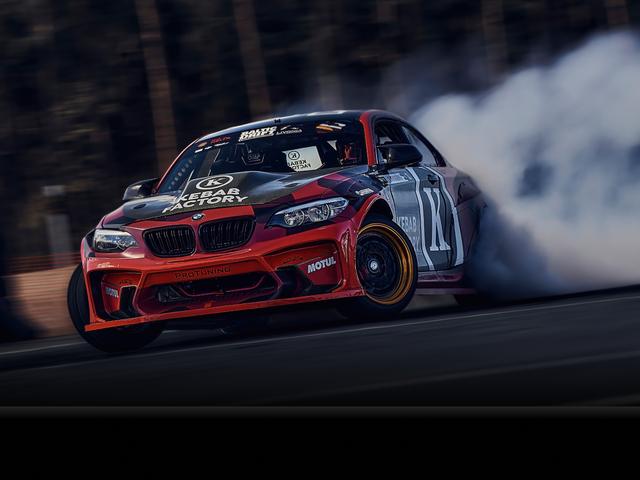

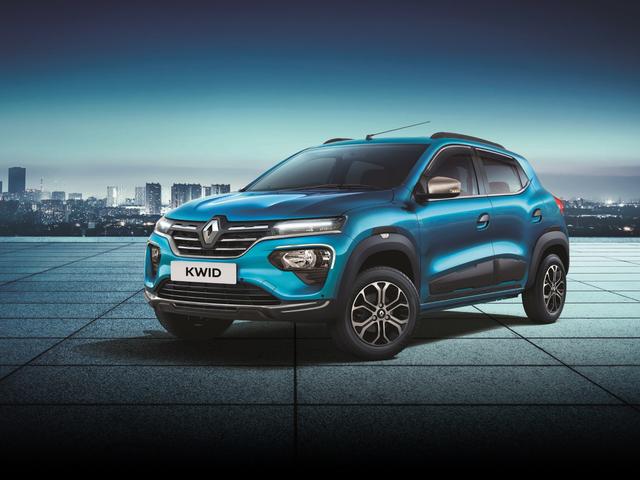

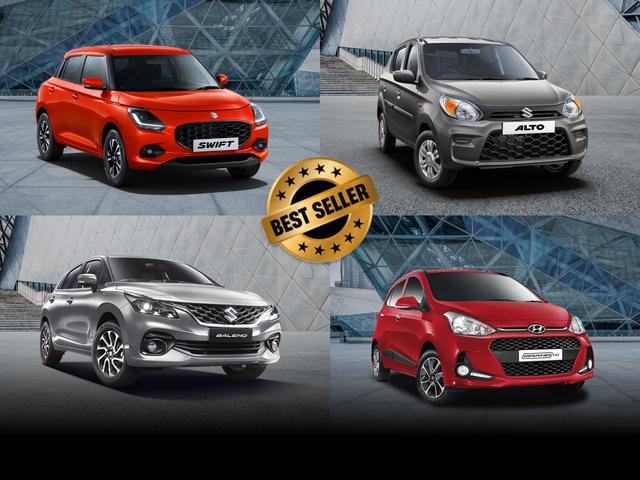

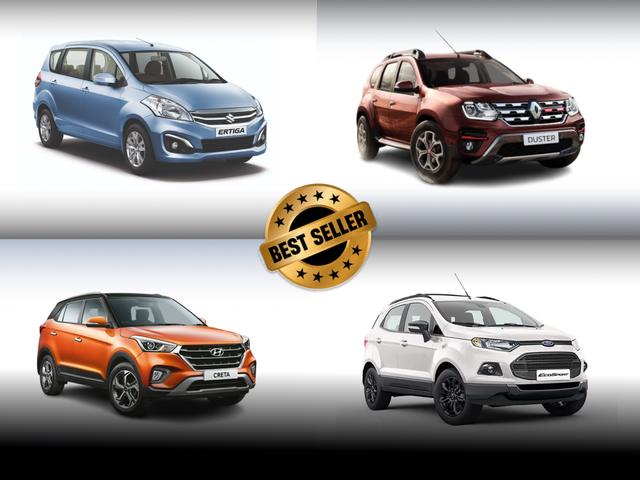

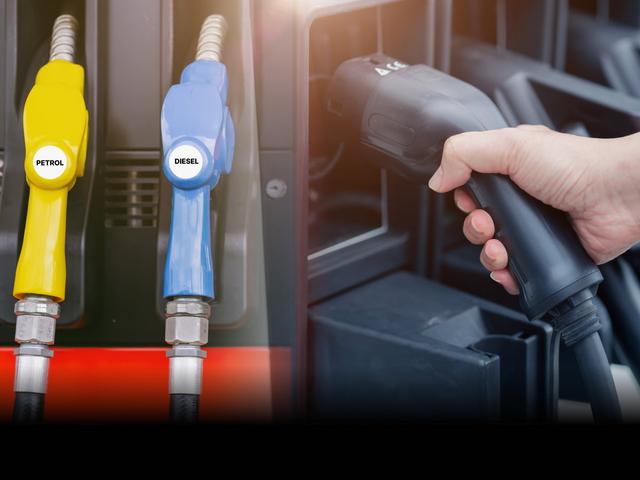

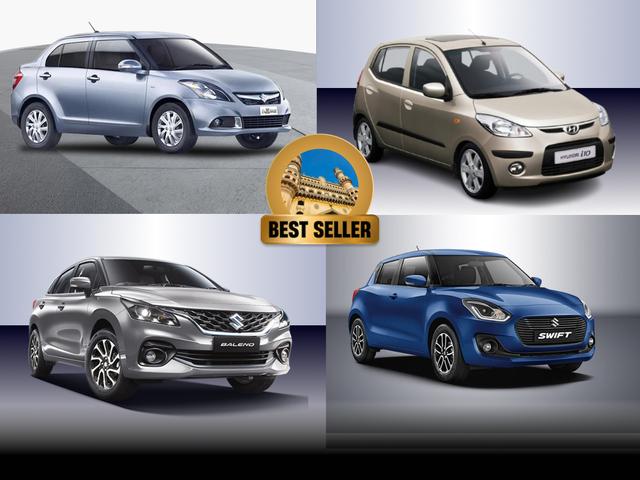

.jpg&w=640&q=75)



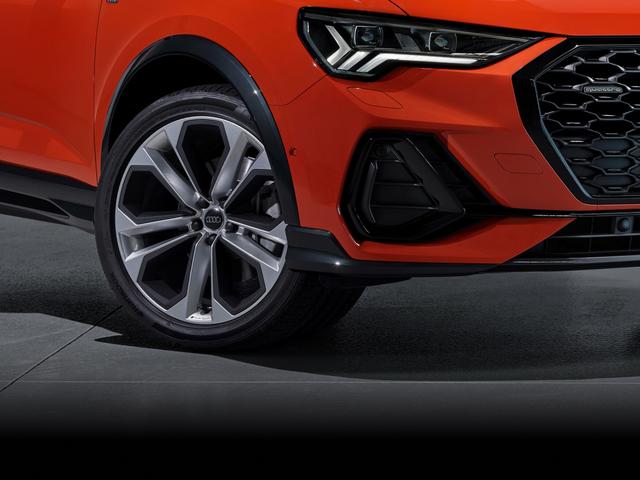





Blink blink !
Its almost here




.webp&w=828&q=75)







